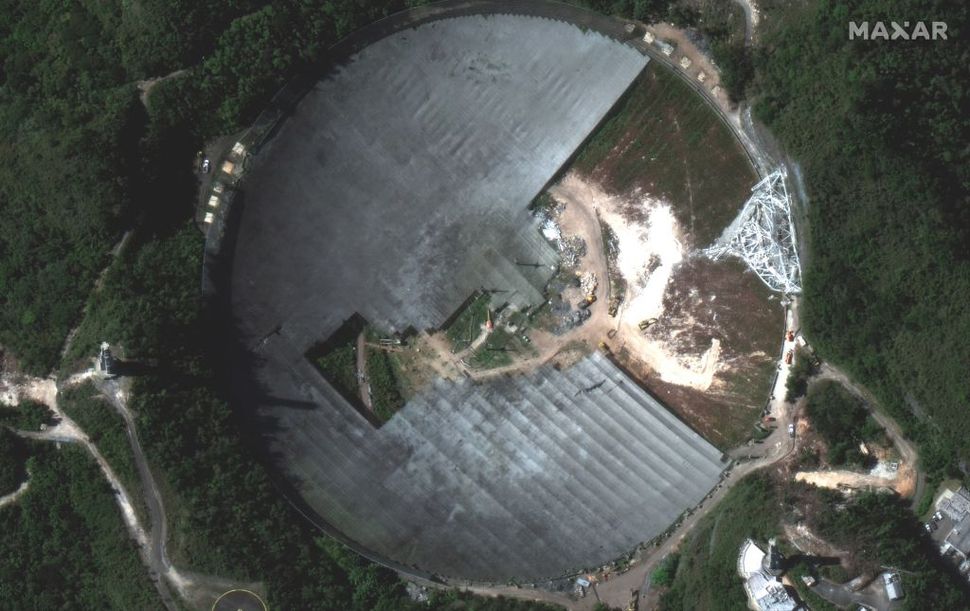Arecibo Observatory has More Science To Do Despite Iconic Radio Telescope’s Collapse
Arecibo Observatory must scientifically reinvent itself even as it continues mourning its iconic radio telescope and cleaning up its debris.
By Meghan Bartels | SPACE.com Senior WriterMarch 8, 2021 | For decades, the words “Arecibo Observatory” was shorthand for the facility’s massive radio telescope, one of those rare instruments that reached icon status beyond its core science community.
The Arecibo Observatory in Puerto Rico, which collapsed in December 2020, is seen from space in this satellite image captured Feb. 23, 2021. (Image credit: Maxar Technologies)But cable failures shattered the telescope and much of its vast dish last year, forcing the observatory to take stock of what science it can still do without the iconic telescope. In the months since the Puerto Rican telescope‘s fall, scientists at the site have rallied by looking ahead to the immediate future of research on site, using what instruments remain.
“Our focus has really shifted to a lot of these other pieces of equipment,” Francisco Córdova, director of Arecibo Observatory, told Space.com. “All of those have been operational throughout. Certainly they weren’t the highlight of the site, but have been operational.”
